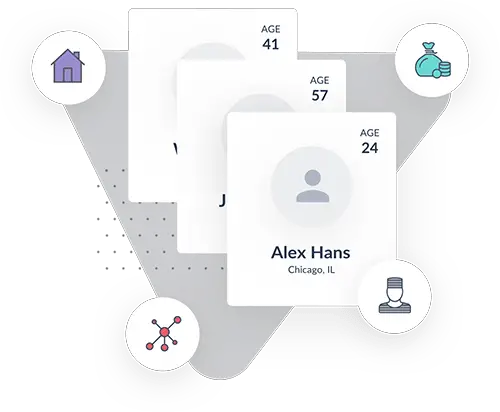If you’re thinking of changing your residence or job, you can probably reckon with a background check. Many are aware of this and choose to run a background check on themselves to avoid potentially unpleasant surprises.
Background checks help determine eligibility for housing or employment by presenting personal information about a prospective inhabitant or employee. Background checks on checkpeople and similar people search services are on their way to becoming standard hiring tools and screening tools for landlords.
What information can You Check?
If you run a background check on yourself, you can find information about your credit (from a credit report), your address history, any criminal background information, driving record, and education and job history.
Credit Information
Experian, Equifax, and Transunion each offer one free credit report a year. The reports list open credit card accounts, past and current debt, loans you’ve paid off, and outstanding loans. They detail your payment history and summarize your debt, indicating accounts for collection, late payments, and missed payments. They list tax liens on property owned by you and civil judgments. They reflect bankruptcies for up to a decade after they were filed.
Background checks will reflect legal name and marital changes as they report names associated with your Social Security number. You can get this data from the Social Security Administration for free.
Address History
Typically, background checks identify addresses associated with your SSN and name from sources such as magazine subscriptions and credit card statements. Usually, they will include information pertaining to your addresses in the past seven years. Do check this info for accuracy.
Criminal Background
If you run a criminal background check on a people search site, it will reflect imprisonment, probation, criminal convictions, and parole. Arrests in the past seven years might show up even if you were found innocent or charges were dropped. Your state’s laws determine if this is the case. In some states, older arrest information can be obtained, even if you’re applying for a job with a relatively low salary. Some states do not allow any information about arrests that didn’t result in conviction to be disclosed.
In terms of federal laws, the Fair Credit Reporting Act authorizes employers to obtain older data than the limit if you’re applying for a job that pays more than $75,000 a year. However, they must provide a background check consent form for you to sign, which must state they’re seeking older information explicitly.
Driving Records
To get a copy of your driving record, visit your state DMV. You can also order one online. Check any relevant state records if another / other state / s have issued you a license in the last 25 years. It’s a good idea to request your record from the corrections department or a court if you have an arrest or conviction record in your past. This will let you see how they’ll show up in a background check.
Education and Employment
According to a recent survey sponsored by the Professional Background Screening Association, 96% of U.S. companies do checks on job applicants.
Some background check services offer specialized lists of information that’s not publicly available. Education and employment history is an example. Education history is used to confirm you actually obtained any degrees you stated and that you graduated from or attended the schools listed on your resume. Your employment history will confirm that you were employed by the companies at all or during the years listed.
Specialized lists can also include information about sex offenses and terrorist activity. The federal government maintains databases pertaining to the latter. Those pertaining to the former are maintained by local and state jurisdictions.
FBI Criminal Background Checks
Law enforcement officers use the National Instant Criminal Background Check System (NICS) to screen persons who are not allowed to purchase or possess firearms. Weapon dealers use it too. Even if you have a clean record, your approval might be delayed. Usually, this is because your name is similar to someone else’s who is on the list.
A search of the National Crime Information Center (NCIC) includes names of known gang members, fugitives, individuals with outstanding arrest warrants, and identity theft suspects.


























